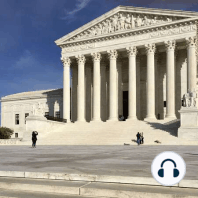7 min listen

Mallory v. Norfolk Southern R. Co. (Personal Jurisidction)
Mallory v. Norfolk Southern R. Co. (Personal Jurisidction)
ratings:
Length:
7 minutes
Released:
Aug 16, 2023
Format:
Podcast episode
Description
Whether the Due Process Clause of the Fourteenth Amendment prohibits a State from requiring an out of state corporation to consent to personal jurisdiction in order to do business in the state. Mallory, a Virginia resident, brought suit against Norfolk Southern Railway Company under Pennsylvania Law -- claiming carcinogen exposure in Ohio and Virginia. Norfolk Southern rebutted the suit with a constitutional argument, arguing that the Pennsylvania court lacked personal jurisdiction against the Virginia company. Although Pennsylvania law requires a registered foreign corporation to answer any suit brought against it within the Commonwealth. The Pennsylvania court ruled that the claim was constitutionally precluded, disagreeing with precedent from supreme courts elsewhere. Held: The Due Process Clause allows states to require foreign corporations to consent to suit in exchange for the right to do business in the State. sThis case is controlled by well-established law (Pennsylvania Fire Ins. Co. of Philadelphia v. Gold Issue Mining & Milling Co. (1917)) -- the Pennsylvania court incorrectly stated that Pennsylvania Fire had been implicitly overruled. Vacated and remanded. Opinion delivered by Justice Gorsuch. Read by: Jake Leahy
Released:
Aug 16, 2023
Format:
Podcast episode
Titles in the series (100)
Marinello v USA (Obstuction Tax code): court holds that in order to obstruct the tax code under the omnibus tax code at the felony level — it requires knowing of an investigation or pending investigation. by Supreme Court Decision Syllabus (SCOTUS Podcast)